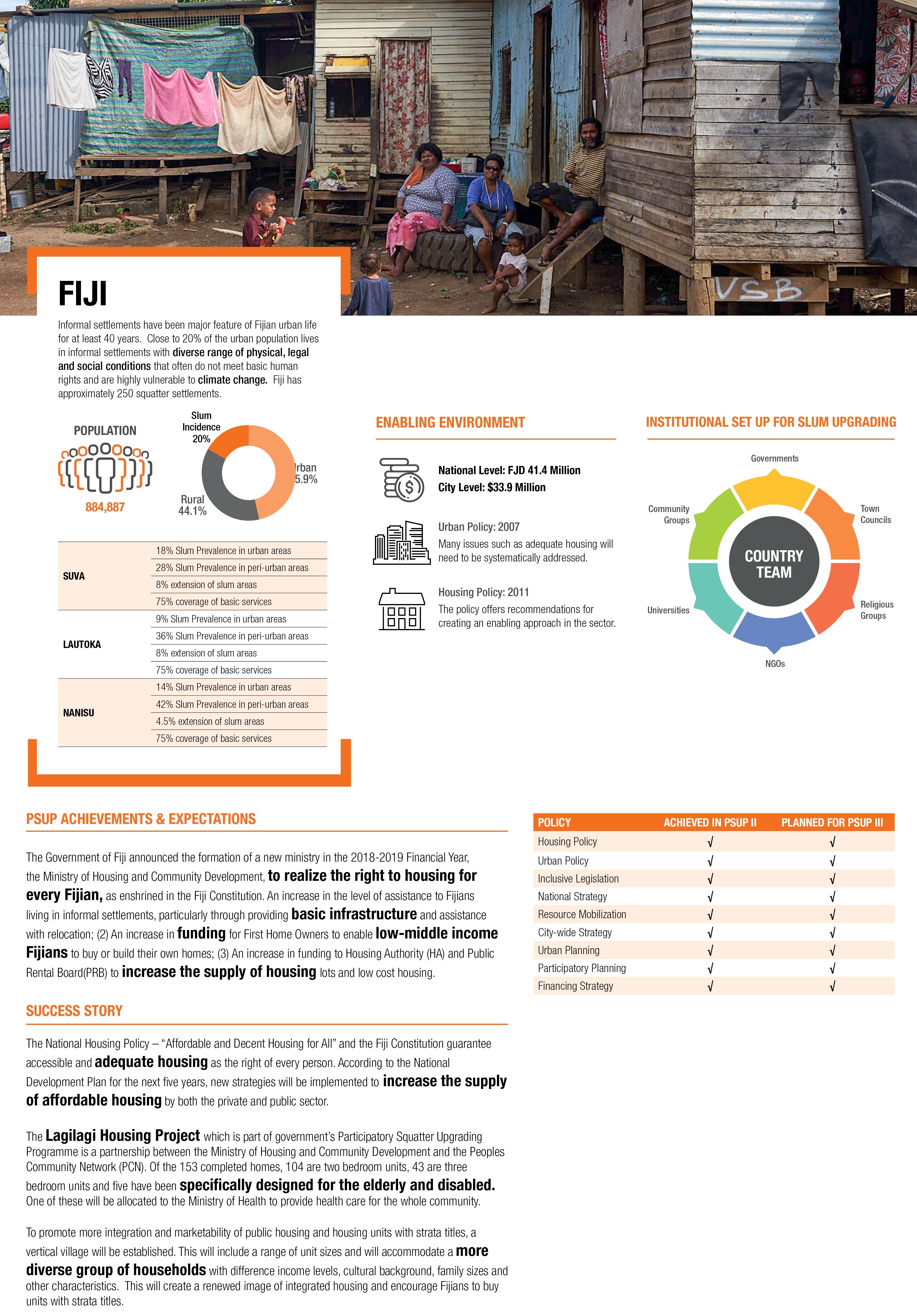Fiji
Fiji is an archipelago of more than 300 islands of which only about 100 are inhabited, however many of them are densely populated. With a total of more than 900,000 inhabitants, Fiji is one of the most populated countries in the Pacific. Its cities are booming; its population is growing. Over half of the inhabitants now prefer living in the cities and towns to living in the countryside or on the rural coast. The rapid rural exodus has consequences: Cities like Lautoka and the capital Suva are now developing uncontrollably and outside the authority of government and urban planners. The suburbs, in particular, are growing enormously. In Nadi alone, a coastal town in the west on Fiji’s main island, an estimated three-quarter’s of the inhabitants live in the slums in the periphery. This raises logistical and planning problems. The people in the outskirts of the city need basic services: sufficient clean drinking water, toilets and washing facilities as well as safe living space.
The People’s Community Network is a key National Implementation Partner to the PSUP Phase II and an active participant in slum upgrading in Fiji, with the responsibility for delivering the Settlement Situation Analysis (SSA). SSA is part of the PSUP Phase II, which will deliver five outputs including a review of Urban and Housing Policies, a Slum Upgrading and Prevention Strategy, a Resource Mobilisation Strategy, and Project Proposals. In cooperation with multiple Fijian Stakeholders for the citywide informal settlement upgrading, 28 community priority projects were identified, eight of which for access (roads, paths, lights), nine for drainage, waste or utilities projects, four for community facilities and the remainder for land, housing, livelihoods and environmental projects. In many cases, there are existing community skills and capacity to co-deliver these projects.


